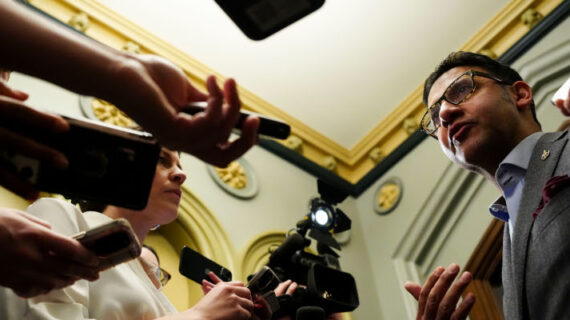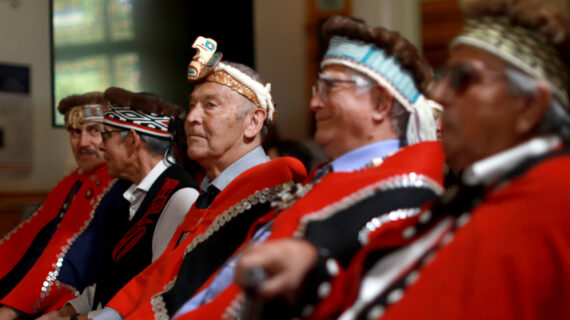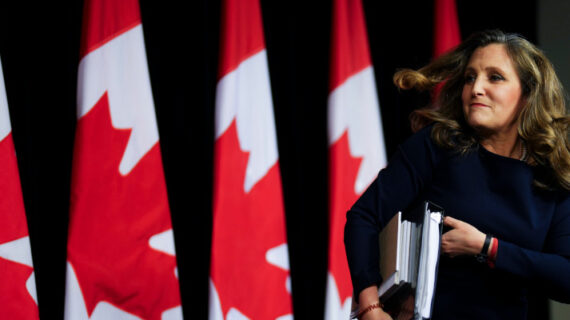On September 16th, the Times of London published a 7,000-word piece outlining detailed and extensive allegations from women about the behaviour of actor and comedian Russell Brand, representing the result of four years of investigative journalism. Brand has extensively talked about his past as a drug-addicted lout before getting sober, and the allegations are credible. I personally heard murmurings about Brand’s lascivious behaviour through the yoga community, and I am strongly inclined to believe the allegations are true.
The allegations have created a perfect storm for the culture wars. Some on the Right were quick to raise suspicion about their timing. Wasn’t it convenient that the accusations were publicized 20 years after the facts alleged and only after Brand reinvented himself from leftist dandy to alt-right darling questioning COVID vaccines and NATO aid to Ukraine? Hadn’t Brand already publicly repented for his past promiscuities and since redeemed himself as a married, very vocally sober family man? Tucker Carlson weighed in before details of the allegations had even been made public, stating “Criticize the drug companies, question the war in Ukraine, and you can be pretty sure this is going to happen.”
Brand himself doubled down on this line of thinking, claiming that while the allegations arose from a time in his life when he was “very, very promiscuous,” his relationships have “always been consensual” and that the allegations were part of “a coordinated attack.”
The wagons have circled swiftly around Brand. YouTube demonetized his content. Many of Brand’s sponsors announced their intentions to cease working with him (though at least one, a supplements company aiming at “bringing back traditional masculinity,” stated it was awaiting further evidence). Remaining live shows on his current tour were postponed, and Brand’s publisher paused future projects with him.
Love Brand or hate him, these reactions are perfectly acceptable in a free society—with one big exception: when they come from government officials. The U.K. Parliament’s response, as reflected in letters from Dame Caroline Dineage of the parliamentary Culture, Media and Sport Committee, badly crosses the line between acceptable criticism and authoritarian attempts to curtail free speech.
It’s acceptable to question why a sexual assault allegation took twenty years to emerge, rendering any testimony more blurry and less reliable. It’s acceptable for a private business, even a mega-platform like YouTube, to switch off ad payments to a creator it wants to disassociate from. It’s even acceptable for individuals to muse about a potential connection, even if highly spurious, between politically edgy comments and criminal allegations.
But it’s not acceptable for a parliamentary committee to try to intimidate social media companies into censoring people they dislike, which is what Dame Dineage has done. On September 20th, Dineage wrote a letter to Rumble, a Toronto-based online video platform that markets itself as being “immune to cancel culture” and pro-free speech. Addressing the serious allegations of sexual assault which have been made against Brand, Dineage wrote to express her “concerns” that Brand “may be able to profit from his content on the [Rumble] platform” and asked the platform to “confirm whether Brand is able to monetise his content.” She went on to query about “what Rumble is doing to ensure that creators are not able to use the platform to undermine the welfare of victims of inappropriate and potentially illegal behaviour.” A similar letter was sent to TikTok.
“Inappropriate and potentially illegal” is an extraordinarily loose standard for an agent of the government to use to try to pressure a private business to deprive an individual, who has not been proven guilty of any crime, of his livelihood. The reaction on the part of the U.K. government demonstrates confusion about the line between private enterprise and government.
The same government that has the power to put Brand in shackles if the allegations against him are proven in court cannot pre-emptively pressure private platforms to deprive him of his livelihood. This tactic of attempting to use official platforms to compel private action without passing any actual laws is called “jawboning” and it was particularly rampant during the pandemic.
It’s also potentially unconstitutional, at least in the United States. A U.S. federal judge recently granted an injunction against the Biden administration for their jawboning towards social media companies about so-called “COVID-19 misinformation.” The ruling said that the government cannot even talk to social media companies for “the purpose of urging, encouraging, pressuring, or inducing in any manner the removal, deletion, suppression, or reduction of content containing protected free speech” without violating the constitutional right to freedom of speech.

This clear demarcation is clearly prudent given the power disparities involved between the state and the individuals who use these companies. The government, of course, might not like such restrictions, but on the whole, U.K. citizens would benefit if they were enforced. And as distasteful as it may be, this even—perhaps especially— rightfully includes protecting those such as Brand who find themselves in the public square accused of terrible behaviour.
Rumble, for its part, has indicated it will not play ball with Dame Dineage. “Although it may be politically and socially easier for Rumble to join a cancel culture mob, doing so would be a violation of our company’s values and mission,” Rumble said.
Dame Dineage’s letter also betrays a blithe disregard for the presumption of innocence which might carry more than a whiff of déjà vu. Recall the total moral panic that happened in Canada with the 2014 allegations of sexual assault against CBC journalist Jian Ghomeshi. All branches of society, it seemed, were in such a frantic rush to judgment that even the police seemed to cut corners, failing to elicit years’ worth of crucial testimony in the form of texts and e-mails between Ghomeshi and his complainants that ended up discrediting their credibility. When Ghomeshi’s counsel Marie Henein brought these love notes, e-mails, and texts into evidence, it sufficiently created a reasonable doubt and led to an acquittal. The irony is that a more measured approach to investigating the allegations might have resulted in a stronger case for the prosecution.
While the allegations of Brand are serious and credible, they must be tested by the adversarial process and under the standard of proof beyond a reasonable doubt. The accused is presumed to be innocent until proven guilty. This is not a platitude, but rather an important prerequisite to the state’s most crushing power to restrict liberty: its power to incarcerate. The state carries the burden of proving in all cases beyond a reasonable doubt that the accused willingly violated the community’s laws in order to exercise this power. And winding up a criminal prosecution by casually pressuring private actors to pile onto a cancel mob should be clearly condemned.




